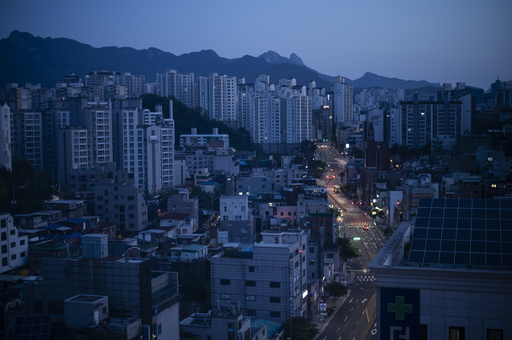POHANG, South Korea – South Korea’s perception of North Korea’s aggressive pursuit of nuclear-tipped missiles directed at the nation and its ally, the United States, reveals a divided viewpoint among its citizens. The divide cuts across various aspects such as age, wealth, politics, status, history, and gender, leading to contrasting opinions on the level of threat posed by North Korea’s actions.
While some South Koreans appear unfazed by North Korea’s threatening rhetoric, weapons tests, and military activities, others are taking precautionary measures by stocking up on supplies for potential nuclear strikes. The analysis by the Associated Press sheds light on the complex and fragmented perspective the South Korean population holds towards its closest neighbor and biggest enemy, North Korea.
North Korea is steadily advancing towards becoming a nuclear power, with its secretive nuclear program raising concerns globally. Despite being one of the poorest countries, North Korea has shown consistent progress in developing nuclear-capable missiles. Recent events, such as the test-firing of short-range ballistic missiles shortly after Kim Jong Un’s declaration of nuclear preparedness, highlight the country’s determination to bolster its nuclear arsenal.
The uneasy truce that ended the Korean War in 1953 has left the Korean Peninsula in a state of technical war, fueling tensions between North and South Korea. The South Korean society’s palpable anxiety is accentuated by the obligatory military service for all able-bodied men. While North Korea has been working on its nuclear program for decades, its intensified efforts since the 1990s aim to pose a direct threat to the American mainland, though technical challenges still persist.
Amid this backdrop, some South Koreans, like 22-year-old Kim Jaehyun, express genuine concerns about the potential for North Korea to employ nuclear weapons. Jaehyun’s proactive approach, including stockpiling military gear and attending security seminars, reflects a heightened sense of alertness towards the North’s capabilities. The skepticism towards North Korea is partly attributed to former U.S. President Donald Trump’s wavering commitment to the Seoul-Washington alliance, raising doubts about U.S. intervention in the event of a North Korean attack on the South.
Conversely, other South Koreans exhibit a more relaxed attitude towards the North Korean threat, placing faith in the U.S.’s alliance with Seoul and the presence of American troops in South Korea as a deterrent. Many dismiss the nuclear threat due to North Korea’s history of making empty threats without following through on full-scale attacks against the South. The prevailing sentiment among this faction is that war is unlikely, with individuals like 28-year-old Kwon Young-il, a former soldier in the reserves, expressing more concern about mundane matters like lunch choices during training exercises than the prospect of combat with North Korea.
The contrasting viewpoints within South Korea underscore the complexities of the nation’s relationship with its northern neighbor and the uncertainties surrounding North Korea’s nuclear aspirations.




